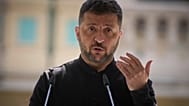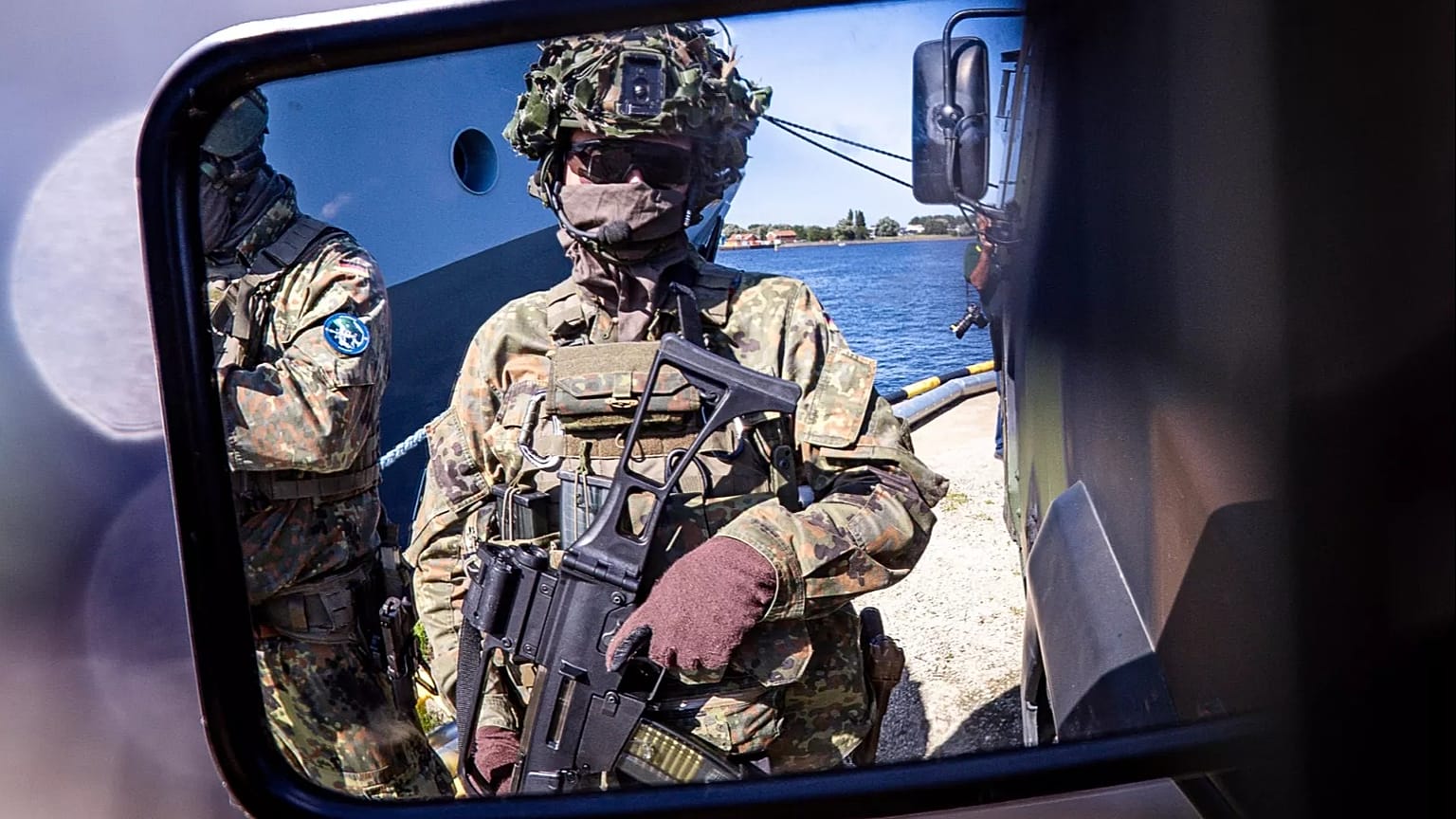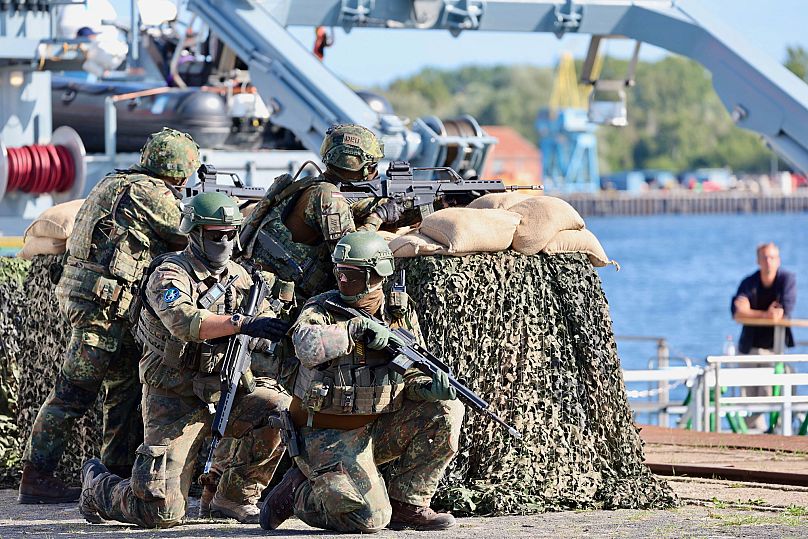Some 8,000 German soldiers and armed forces from 13 other NATO countries are taking part in the multi-week "Quadriga 2025" exercises.
 ADVERTISEMENT
ADVERTISEMENT
The German army is leading joint military exercises in the Baltic Sea amid tensions with Russia over the war in Ukraine.
The Bundeswehr confirmed that 40 ships, 20 aircraft and more than 1,800 road vehicles are participating in the "Quadriga" drills.
Military leaders from Germany and ambassadors from Baltic nations were among those who gathered in the German port of Rostock on Thursday to see the exercises.
They saw the departure of a ferry loaded with army vehicles, which was bound for Klaipeda in Lithuania and which was accompanied by a corvette, a helicopter and a minesweeper, as well as by police.
In total, some 8,000 German soldiers as well as armed forces from 13 other countries are taking part in the multi-week exercises, including all NATO countries with Baltic Sea coasts as well as other alliance members such as the UK, France and the US.
A spokesperson for the Quadriga Media Information Centre told Euronews that the manoeuvre "demonstrates the determination, capability and willingness of Germany and its allies to defend their territory and NATO territory against any external attack."
Speaking on Thursday, Germany's Chief of Defence General Carsten Breuer said "we are seeing close up today what it means in concrete terms when Germany takes international responsibility" and acts as a "reliable supply hub for NATO."
"Almost all supply routes to the eastern flank go via Germany," he added.
Earlier this week, Breuer said that his army was "vigilant" as Russia and Belarus prepared to start joint military exercises — called Zapad (West) — in mid-September.
"The threat remains unchanged, both hybrid and conventional," Breuer noted. "Putin is watching us, and his plans go far beyond Ukraine. As armed forces, we must prepare ourselves for this."
Breuer also stressed that "we want deterrence, we don't want escalation."
Amid the threat posed to European security by Russian aggression, Germany is, like other NATO members, scaling up its military expenditure.
Berlin hopes to see tens of thousands of more soldiers join the Bundeswehr.
As part of these efforts, the German cabinet backed a draft bill in late August which aims to bolster the country's defences by increasing the number of troops from 182,000 to 260,000 by early next decade.














